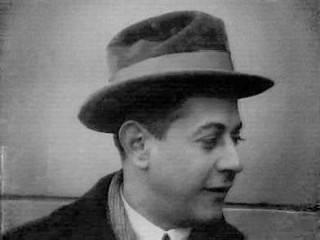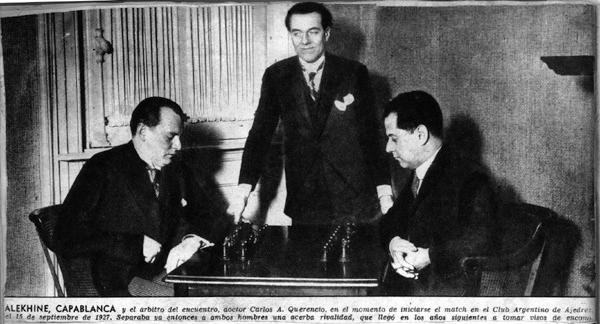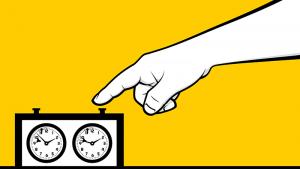
José Raúl Capablanca's World Championship Positional Wins
Last Friday, we discussed the first half of José Raúl Capablanca's chess career, tracing his meteoric rise through the lens of his finest positional wins.
In 1921, after a decade of heated negotiations and parley, the final terms of the world championship match between Lasker and Capablanca were finally laid out.
At 52 years of age, Emanuel Lasker was still going strong. Having ascended to the throne in 1894 by defeating Wilhelm Steinitz, Lasker defended his title no fewer than four times: in 1907 against Frank Marshall (11½-3½), in 1908 against Siegbert Tarrasch (10½-5½), in January 1910 against Carl Schlechter (5-5, with a tie counting as a victory for the reigning world champion), and in November 1910 against Dawid Janowski (9½-1½).
Well-rested and in excellent physical form, Lasker was not about to go gentle into that good night!

On March 15, 1921, at the Union Chess Club in Havana, the players shook hands and the bloodletting commenced. The first four games ended in relatively uneventful draws, but the fifth proved to be the turning point of the match.
An epic battle that teaches an invaluable lesson: It is not about who makes the most errors, but rather who makes the most significant ones. Without a doubt, Capablanca's play was uncharacteristically sloppy: he failed to exploit Lasker's inaccuracy on the seventh move, and his technique was very spotty at best. But it is the mark of a true champion to fight through the bad days, coming out on top even when things do not come naturally.
Lasker never fully recovered from the shock of this game. Four more draws followed, but in the 10th match game, Capablanca won again, this time in fine positional style. He followed it up with his most convincing performance yet.
Capablanca won the 14th game as well, and Lasker had had enough. Down by four points, he resigned the match, and — to the delight of chess fans all around the World — José Raúl Capablanca was crowned the third world champion.
Needless to say, Capa did not rest on his laurels. Less than three years later, he was back at the office, coming in second at the 1924 New York International (behind Emanuel Lasker, mind you!). In round nine, he annihilated GM Efim Bogoljubow in a fine positional display.
By the early 1920s, Alexander Alekhine was already turning heads at the highest level. His dynamic style, coupled with an unparalleled tactical intuition, excellent calculating ability, and a solid positional foundation, enabled him to score countless tournament victories and — in 1927 — to challenge Capablanca for the title.
In an epic 34-game match excellently covered by Bryan Smith, Alekhine wound up on top by the narrowest of margins, winning the final game to dethrone Capablanca and become the fourth world champion.

No longer the title-holder, and now in his 40s, Capablanca started a graceful descent into retirement. He remained quite active in the 1930s, winning the 1931 New York International, the 1936 Moscow International, and the 1937 Paris International. At the 1939 Olympiad, he scored 11/13 (no losses) playing top board for the Cuban national team.
His game against Lithuanian master Vladas Mikenas is particularly impressive.
Even at the tail end of his career, Capa lost none of his vitality and positional mastery!
In between his travels, Capablanca was a frequent guest at the Manhattan Chess Club, mingling with the old timers and kibitzing on the blitz games. One day in March 1942, during a heated conversation with a few club regulars, he tragically fell ill and collapsed of a cerebral hemorrhage.
At 6:30 p.m. on March 8, 1942, Capablanca — only 53 years old — was pronounced dead at the Mt. Sinai Hospital.
But as French author Anais Nin famously remarked, "Those who live deeply have no fear of death."






